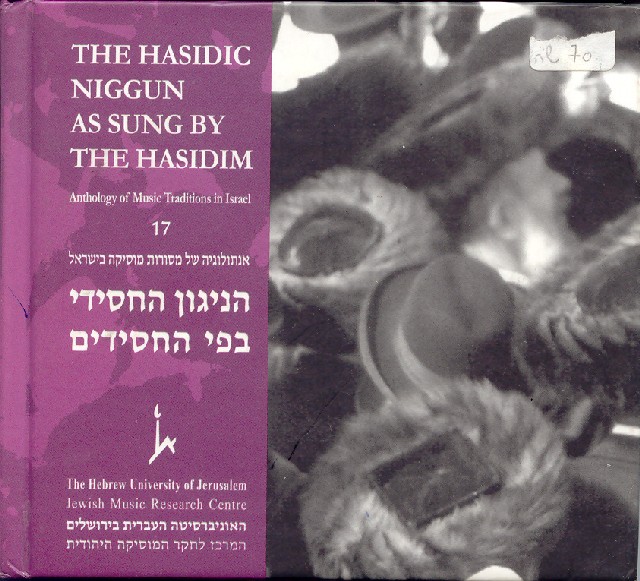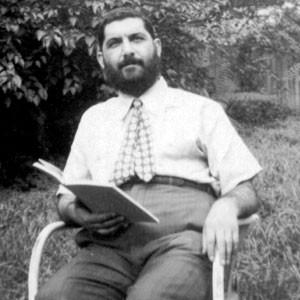2004
8. Badkhones ("jesting") at the Wedding Eeception
Shelomo Kahana and guests, wedding of Eliezer Lipa, son of the Rebbe of Spinka, Jerusalem, 29 August 1982.
At the "reception," just before the groom is led to the huppah, someone regales the groom with a kind of rhymed moralistic sermon, as if preparing him for the wedding ceremony. According to Hasidic lore, the wedding ceremony (more precisely, the qiddushin) symbolizes the bond between God and the people of Israel, as well as the communion of the bride and groom in the world of the sefirot, specifically, the sefirah of tif'eret (Beauty) and the Shekhinah (Divine Presence). Frequently, as in this recording, these rhymes are read from a prepared text by an "amateur" badkhn - a member of the groom's family or a close friend. Some of the rhymes repeat those used at other weddings with slight changes to adapt them to the individual groom. On this occasion, Shelomo Kahana (b. 1957) used rhymes that had been written by R. Mordechai David Teitelbaum, the Rebbe of Husakov (Beer Sheba), for the weddings of his children and grandchildren. The jesting phrases remind the groom that he must atone for his sins on his wedding day as if it were the Day of Atonement (a common motif of Hasidic thought). The groom is also urged to search his soul and ensure that he has not committed any sins that might delay the redemption. Some badkhonim point out that the groom's characteristic costume, a white kitl, symbolizes the shroud in which a corpse is wrapped. Others, like Kahana, remind him that his dead ancestors will come to attend his wedding. Still others add that he has the power on this occasion to influence the fate of other people, like the person who leads prayers on the Day of Atonement (see below, no. II,10, sequences 3-5, 8-9). Accordingly, these rhymes are recited to special tunes, similar in style to those of the qinot for the fast of the Ninth of Av. We have included in this recording six out of the twenty-nine rhymes sung by the badkhn. The congregation participates in a brief response, without text, after each rhyme (for similar rhymes see Ha-shir veha-shevah, part II, pp. 168-174).
Beloved groom, listen to my words,
Open your heart and prepare for my words,
Pay close attention to my speech,
As my words flow from the depths of my heart.Reconsider, think well
In what hour you find yourself now, what is the moment,
Today is a great Day of Atonement for you,
If you repent fully, your sins will be forgiven.Thus said the holy prophet:
"The heart alone knows its bitterness."
Reexamine every action
Lest, Heaven forfend, you delay the redemption.Before you take a great step in your life
I wish to say a few words in your ears:
Understand these things with your mind,
The holy ancestors come to their children's weddings.The proper time has now come
For you to ask them to plead for you.
May your marriage be successful be happy as a couple,
Live in joy until you are one hundred and twenty years old.They will surely do your will
If you undertake to follow their path;
If you continue the line of the family
You will be granted every favor and much blessing and success.






